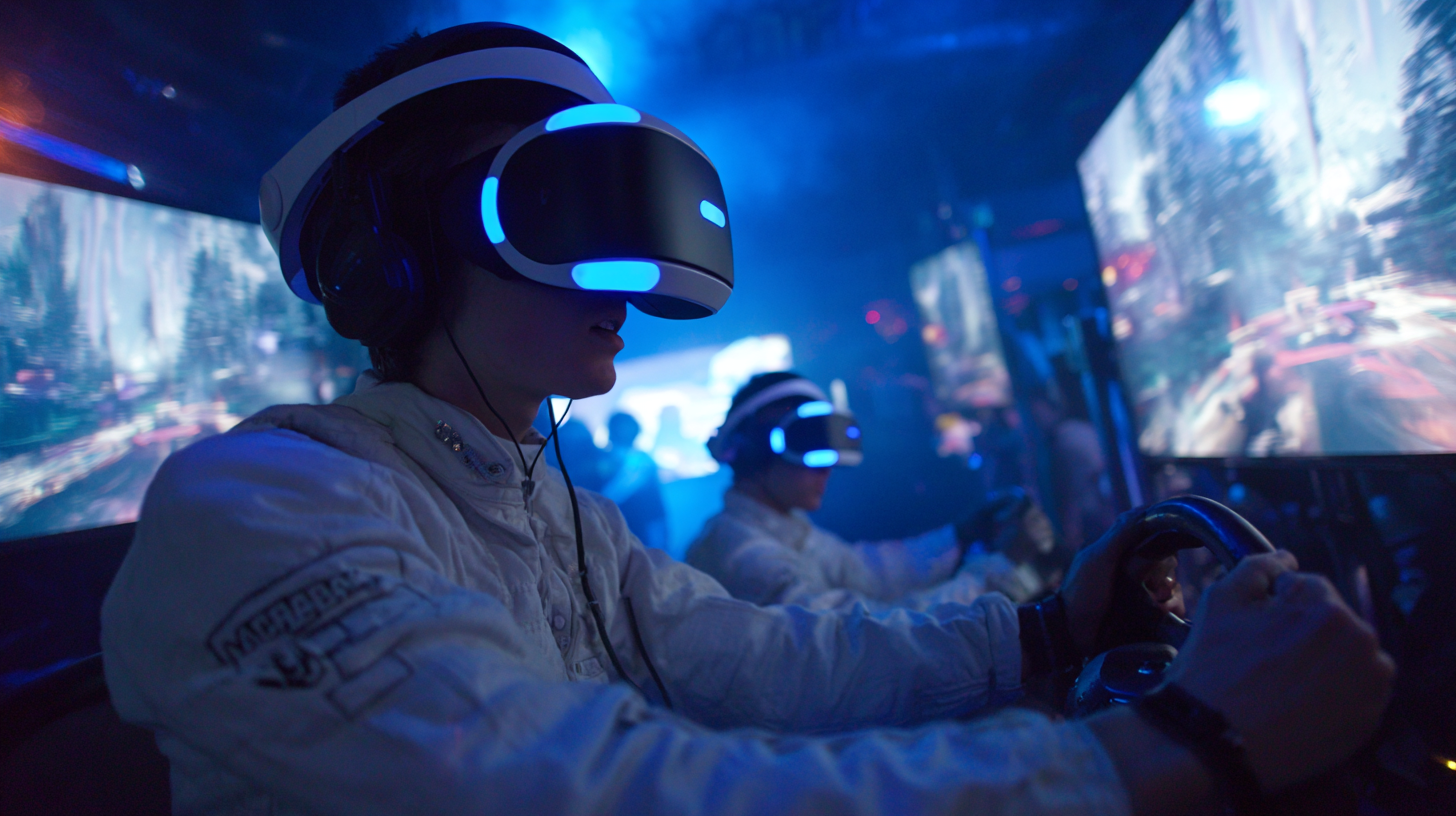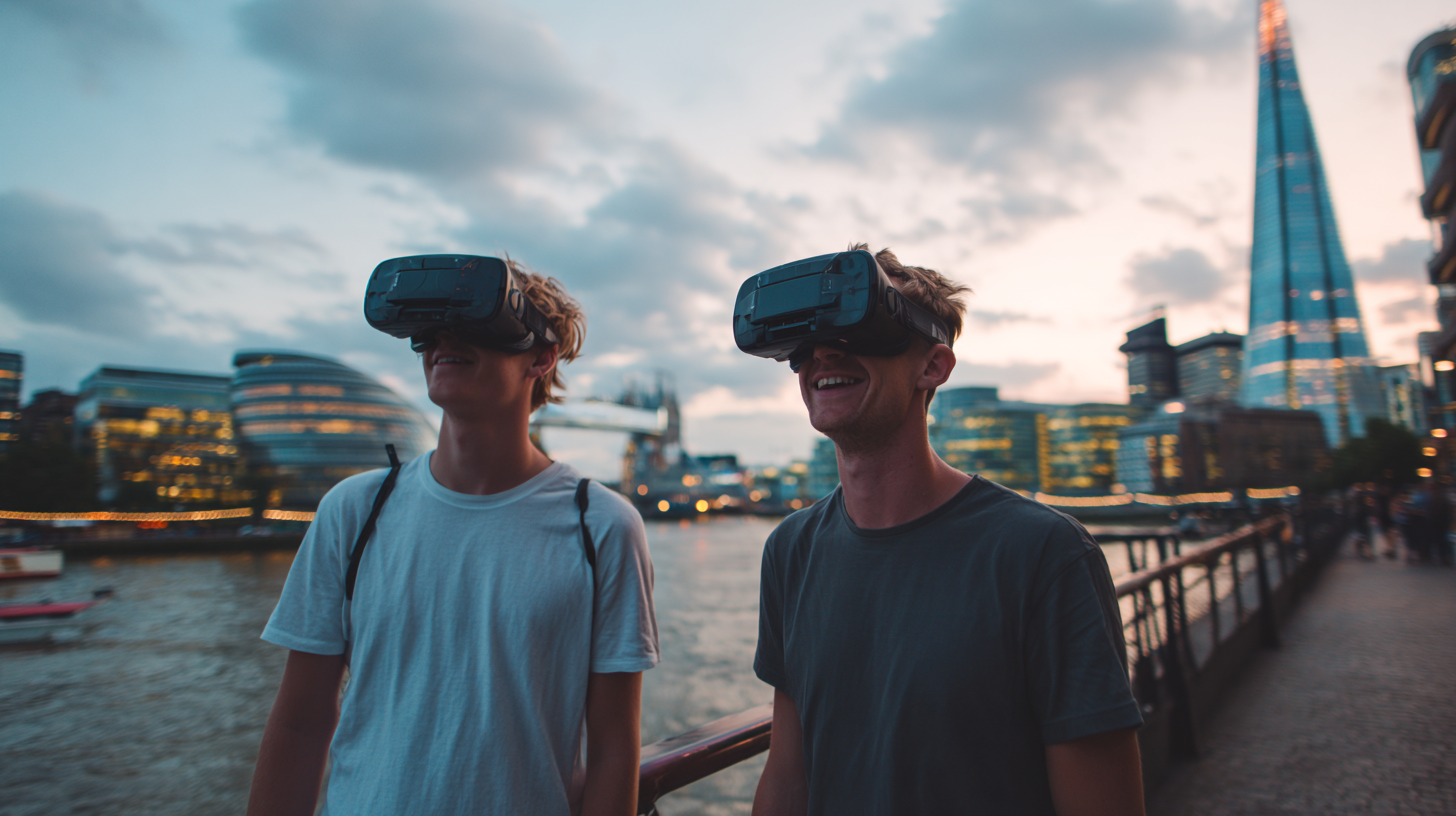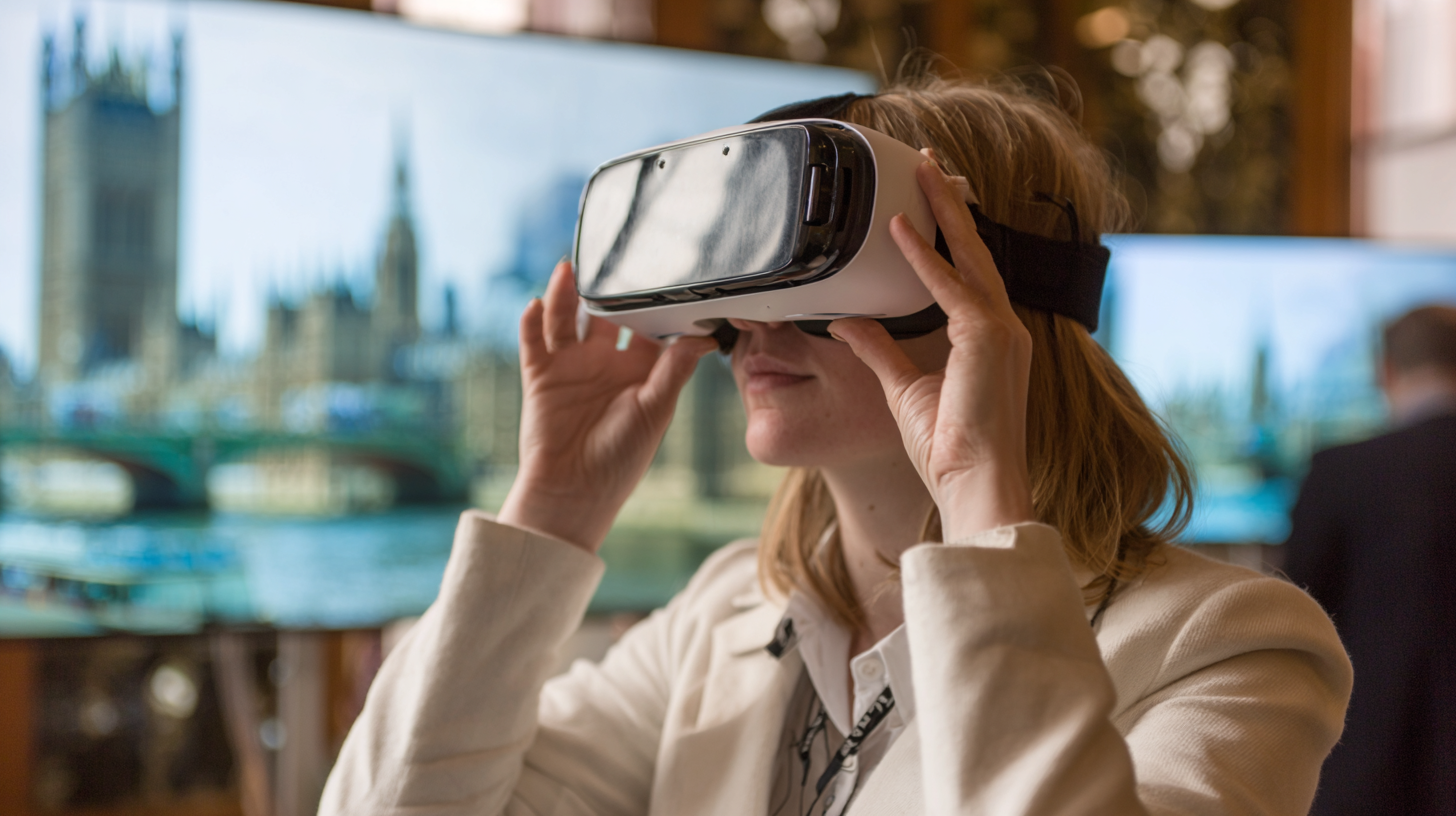As the virtual reality (VR) industry continues to flourish, London emerges as a key player in offering unparalleled VR experiences that captivate audiences worldwide. According to a recent report by Statista, the global virtual reality market is projected to reach over $300 billion by 2024, highlighting a growing demand for immersive experiences. In this vibrant city, innovative companies are leading the way in providing cutting-edge VR technology, which not only enhances entertainment but also transforms industries such as education, healthcare, and tourism.

With an emphasis on quality and a commitment to leveraging advanced technology, the VR experience in London is set to deliver unforgettable adventures that unlock the potential of this rapidly evolving medium. As we explore the advantages of the best VR experiences in London, it becomes clear that this captivating frontier is shaping the future of engagement and interaction on a global scale.
The evolution of virtual reality (VR) technology in London has been nothing short of remarkable. Over the past decade, the city has emerged as a global hub for innovation in VR, attracting tech startups as well as established gaming companies. The development of more sophisticated hardware and software has enabled creators to design immersive experiences that were previously unimaginable. From art installations to educational simulations, London has become a canvas for groundbreaking VR applications that captivate and engage users in new ways.

As the technology continues to advance, London offers a plethora of VR experiences that showcase its potential. Cutting-edge VR arcades and exhibitions provide visitors with the opportunity to interact with content that blends the digital and physical worlds. This evolution has also fostered a community of creators and enthusiasts who are pushing the boundaries of what VR can achieve. With partnerships between tech companies, cultural institutions, and educational organizations, London is not just a leader in VR technology; it is a living laboratory where the future of entertainment and education is being shaped.
In the realm of virtual reality (VR), industry standards play a crucial role in determining the overall quality of the experience offered to users. As VR technology advances, consistency in quality becomes essential to ensure that all participants can enjoy immersive worlds without interruptions or technical malfunctions. The establishment of clear guidelines helps manufacturers and developers adhere to best practices, which ultimately enhances user satisfaction and retention.
Moreover, adherence to industry standards fosters innovation and collaboration among VR developers. When creators align with established norms, they can focus on pushing the boundaries of technology rather than reinventing the wheel. This synergy not only results in richer and more engaging experiences but also streamlines the development process. As a result, players in London and beyond can expect increasingly refined VR encounters that captivate and enthrall, setting a benchmark for future developments in the virtual space.

As virtual reality continues to gain traction in the entertainment industry, London's VR landscape has become a vibrant hub for enthusiasts and newcomers alike. Recent industry reports indicate that the global VR market is projected to reach $57.55 billion by 2027, with a significant portion of that growth driven by immersive gaming and experiential attractions. This boom has led to a proliferation of top-tier VR venues across the city, each offering unique experiences that cater to varying tastes and interests.
Among the leading VR venues in London, locations such as "VR Sports" and "Void VR" stand out by providing advanced technology and engaging gameplay. "VR Sports" boasts a 99% customer satisfaction rate according to visitor surveys, while "Void VR" is known for its high-quality graphics and realistic simulations, attracting gamers and families alike. Furthermore, a comparative analysis reveals that venues incorporating social elements, such as multiplayer options, tend to enjoy longer visitor engagement times, highlighting the importance of a community-driven experience in enhancing user satisfaction. As VR technology advances, the choice of venue can significantly impact the overall experience, making it vital for enthusiasts to explore their options in this dynamic city.
| Venue Type | Location | Unique Features | Average Price (per session) | User Rating (out of 5) |
|---|---|---|---|---|
| Arcade VR | Central London | Multiplayer experiences, competitive gaming | £20 | 4.6 |
| Escape Room VR | North London | Puzzle-solving in immersive environments | £30 | 4.8 |
| Cinema VR | South London | Immersive movie experiences with surround visuals | £25 | 4.7 |
| Art VR | East London | Interactive art installations | £15 | 4.5 |
| Fitness VR | West London | VR-enhanced workout sessions | £12 | 4.4 |
User-centric design plays a pivotal role in enhancing the
virtual reality (VR) experience, making it more immersive and engaging for users. By prioritizing the
needs and preferences of users, developers can create environments that feel intuitive and accessible. One significant approach is to incorporate
feedback mechanisms, allowing users to share their thoughts on the VR experience, which can be used to refine and improve the design further. This
dynamic interaction fosters a community-driven evolution of VR technology, ensuring products resonate with their audience.
When exploring the best VR experiences in London, remember a few tips to maximize your enjoyment. First, take some time to familiarize yourself with the equipment before diving in.
Understanding how to navigate the VR environment can significantly enhance your experience, making it less frustrating and more enjoyable.
Secondly, try to engage with various VR applications, as each has unique design elements that showcase user-centric features. This variety not only keeps the experience fresh but
also allows you to discover different ways that VR can meet your interests and preferences.
As virtual reality (VR) technology continues to evolve, its applications are expanding beyond entertainment into areas such as education, healthcare, and training. One significant trend is the integration of artificial intelligence with VR. This combination is enhancing user experiences by creating more immersive, responsive environments that adapt to users' actions in real-time. Consequently, we can expect to see VR scenarios that are not only visually stunning but also intuitively engaging, allowing for deeper interactions and learning opportunities.
Another exciting trend is the rise of social VR platforms, where users can connect and interact in shared virtual spaces. This development is particularly relevant in a post-pandemic world, as people seek new ways to socialize and collaborate remotely. With advancements in haptic feedback technology, these platforms will likely offer an even more realistic experience, making virtual interactions feel significantly closer to in-person gatherings.
As these technologies develop, the boundaries of reality will continue to blur, opening doors to unprecedented social and collaborative experiences that were once the stuff of science fiction.
